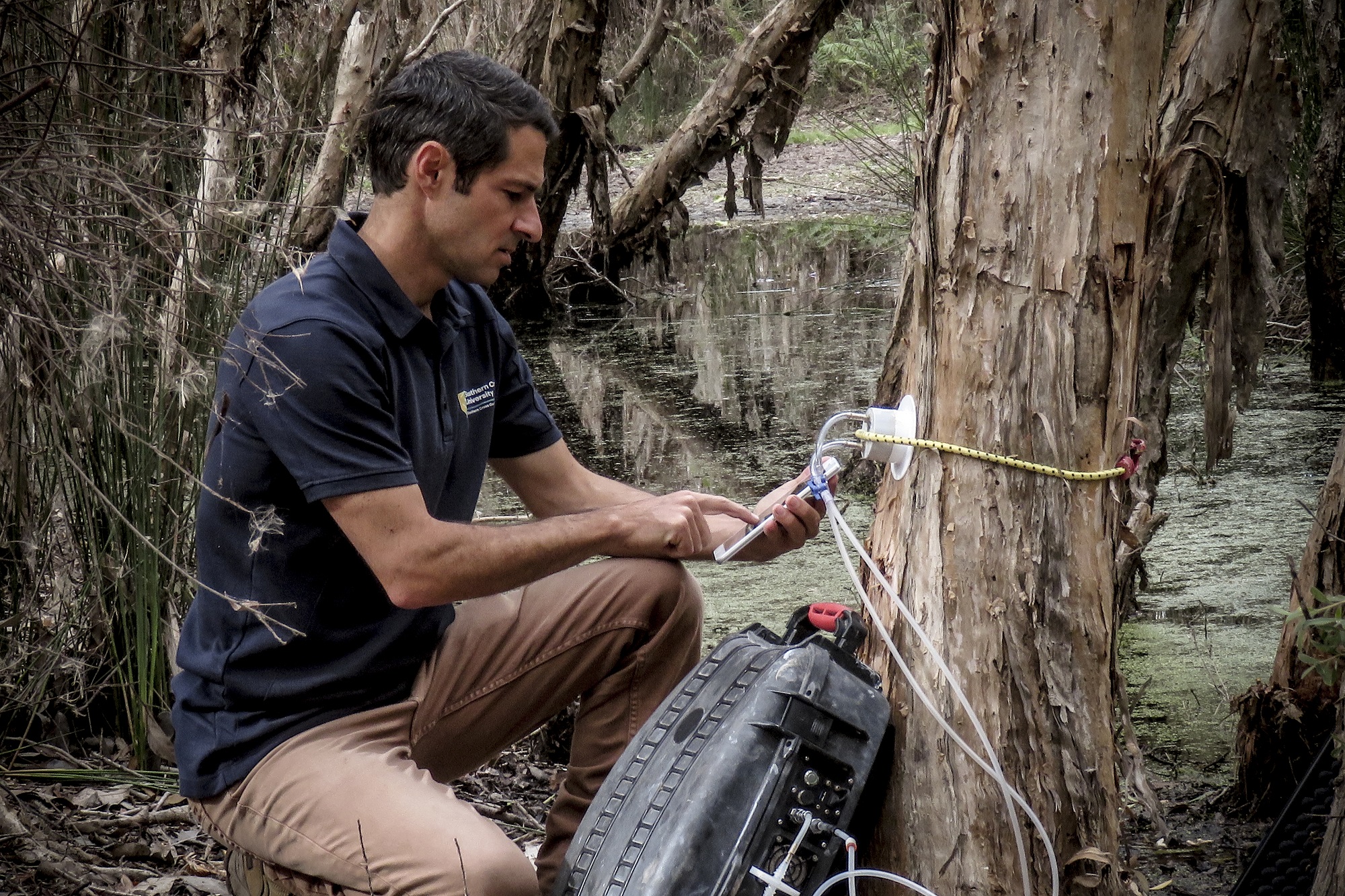Two Southern Cross University researchers, Dr Luke Jeffrey and Dr Judith Rosentreter, have secured Australian Research Council Discovery Early Career Researcher Award grants worth a total of $891,197 to further their studies on methane emissions from vegetation, soils and water, which have already turned up some game-changing findings.
So we now know that bark dwelling microbes have the capacity to regulate the methane emissions from trees and therefore may play an important mitigation role in the global methane cycle and in climate change.
Dr Jeffrey’s previous research, which earned him a Chancellor’s Medal from Southern Cross University and has been recognised in the United Nations Intergovernmental Panel on Climate Change Assessment Report 6, has shown that wetland trees can emit substantial amounts of methane, or ‘treethane’, via their stems or trunks - a process that, until now, has been broadly overlooked.
“While wetland soils store vast amounts of carbon, they also emit methane, a greenhouse gas that is about 45 times more powerful than carbon dioxide when it comes to warming our planet,” said Dr Jeffrey.
In a different but related area of study, Dr Judith Rosentreter’s new research, funded with an ARC DECRA grant worth $434,042, will focus on identifying and quantifying methane oxidation and production processes in mangrove environments, mostly in soils and water.



… but this has been happening for millions of years. The problem is the introduction of previously sequestered carbon that adds to the ongoing carbon cycle.
How do you know it’s been happening for millions of years? Science, like this, has told you it is.
I had to swap the title out for the opening statement so it seems more clickbait-y that it was intended to be. The actual title created by lemmy is:
DECRA grants to Jeffrey and Rosentreter